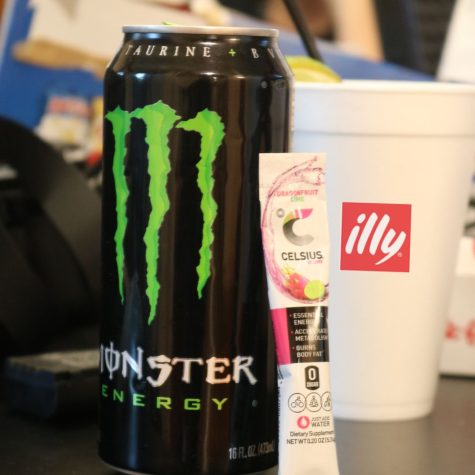Why is caffeine addiction so widely accepted?
November 11, 2022

Imagine that the most widely abused psychoactive drug in the world was not waiting for you in a blunt, a syringe, or a pack of cigarettes but instead available without age limits or restrictions at your favorite local or chain coffee shop.
This substance is none other than caffeine, a highly psychoactive substance found in a variety of drinks including coffee, energy drinks, pre-workout, and sports drinks. According to researcher JW Daly, 80% of adults in the US consume enough caffeine in a sufficient quantity to have some effect on the brain.
Despite its capability to alter both brain and body and cause extensive alterations to neural pathways, caffeine consumption and addiction is widely accepted. In fact, caffeine remains one of the only psychoactive substances that are virtually unregulated and legal in almost every part of the world.
The societal perception of the use of this substance can be distorted in many ways. Only recently has research been conducted confirming that caffeine users, like users of other psychoactive drugs, can become dependent on the substance, causing them to go through withdrawal. Granted, symptoms will be much milder than someone attempting to get clean from the use of other illicit controlled substances.
In a piece for the New York Times, Dr. Roland Griffiths from the department of psychiatry and behavioral sciences at the Johns Hopkins School of Medicine in Baltimore clarifies that caffeine can produce a mild physical dependence in frequent users.
“We know from laboratory studies that people can get physically dependent on caffeine and show tolerance to it, but that doesn’t mean they have great difficulty giving it up,” Griffiths said.
The short-term positive effects of caffeine, which include an increase in alertness and concentration make it a perfect tool for use (and abuse) among college students. College students collectively are faced with a constant barrage of impending deadlines, high stress, and inadequate sleep, a perfect recipe for the desperate need for caffeine day in and out.
The heavy use of caffeinated beverages among college students has created a niche of the consumer beverage market that devotes itself to releasing energy and coffee drinks targeted towards young adults. One such company is Celsius, which has released a VIBES series of drinks that has caused an explosion of sales in its target demographic, which is primarily college-aged females.
Many GC students consume caffeine regularly to help them both in school and in extracurricular activities. These activities include jobs, running, school work outside of class, and strength training.
Nina Schwelm, a sophomore mass communications major, when asked if she consumed caffeine regularly said, “yes, but I do not feel it is necessary for my survival.” She sees immense benefits from her consumption of coffee including enhanced performance and focuses in her college classes, without feeling that it is in any way requisite to her success.
Similarly, Shaw Coggin, a sophomore mass communications major, relies on caffeine to power him through early morning classes after an inadequate night of sleep but feels no dependence on the substance.
“I am not addicted to coffee but I definitely like it a lot. It gives me a boost of energy in the mornings which is especially needed on the days when I have my 8 AM,” said Coggin.
Caffeine has been and remains to be a crucial part of the college student’s toolbox to tackle the expectations that come with trying to earn a four-year degree from an accredited institution. However, its psychoactive nature should be factored into one’s decision on the quantity and frequency with which it is consumed.



